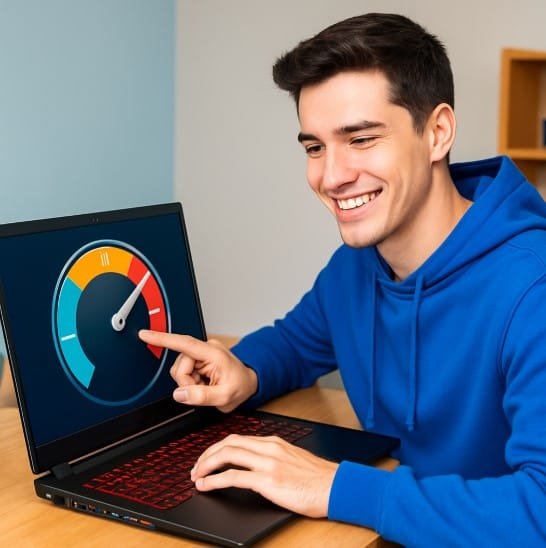Now Reading: How to Access Free Online Courses for Absolute Beginners
- 01
How to Access Free Online Courses for Absolute Beginners

How to Access Free Online Courses for Absolute Beginners
When I first tried to access free online courses, I felt totally overwhelmed. There were so many options, and none of them seemed beginner-friendly. I wasn’t sure which websites I could trust, what I actually needed to learn, or if any of it was even worth the time.
I felt confused, stuck, maybe even a little intimidated but after reading a couple of blog articles and watching some YouTube videos, I realized that learning something new (like coding or any other skill) doesn’t have to be scary or expensive. You just need the right roadmap, and that’s exactly what I’m going to give you.
Whether you’re curious about free online coding courses for complete beginners or you just want to learn at your own pace, this guide is your starting point.
Why Free Courses Work Even For Absolute Beginners
You might be thinking, “Can I really learn anything serious without paying for it?” Well, I used to think the same. But here’s the truth I’ve learned: free online courses work surprisingly well especially when you’re just starting out.
Why? Because at the beginner stage, your biggest challenge isn’t mastering advanced skills but figuring out what the heck you’re doing. That’s where free courses shine. They give you room to explore without the pressure of spending money on something you’re not even sure you’ll enjoy yet.
When I began trying to access free online courses, I treated it like test-driving a car. I didn’t need the fanciest features, I just wanted to see if I could drive without crashing. Turns out, you can build real momentum this way.
Here’s why free courses are so beginner-friendly:
- Low risk, high reward
You’re not locked into anything. If one course doesn’t click, try another. No guilt. No invoices. - Simple, bite-sized lessons
Most free platforms design their content for beginners. That means shorter videos, friendly instructors, and step-by-step instructions that is perfect for someone just dipping their toes in. - Real-world skills, no fluff
You’d be surprised how many free online coding courses with certificate options actually teach job-ready skills like HTML, CSS, Python, and JavaScript without any cost at all. - Freedom to go at your own pace
Free courses usually let you pause, rewind, or come back later with no deadlines and no stress.
I’ve personally used platforms like freeCodeCamp, Khan Academy, and Coursera (most of these sites have free versions) to learn skills from scratch. These sites offer online coding courses for absolute beginners that are clear, welcoming, and yes actually useful.
So don’t buy into the myth that free equals low quality. You can absolutely access free online courses that build your confidence and teach you real skills — you just need to know where to look. And that’s exactly what we’ll discuss next.
My Top Tools to Access Free Online Courses
Alright, let’s talk about where to actually find these free courses. I’ve spent a lot of time digging through platforms, trying things out, and honestly — getting overwhelmed by the options. So, to save you the headache, I’ve put together my go-to list of places where you can access free online courses without running into paywalls or sneaky sign-up traps.
1. freeCodeCamp
If you’re interested in free online coding courses for complete beginners, this is the place to start. It’s super beginner-friendly, teaches you by doing, and covers everything from HTML to JavaScript to APIs. Best of all is that you get certificates after each section and they actually mean something.
I’ve personally used freeCodeCamp and can tell you that the lessons are clear, the community is helpful, and you’ll feel like you’re building something real right from the start.
2. Khan Academy
This site is like having a super-patient tutor on demand. It’s not just for kids — their intro to programming courses (especially JavaScript and drawing/animation) are perfect if you’re a total beginner who wants a fun, visual way to start learning.
3. CS50 on edX (by Harvard)
Now, don’t be scared off by the Harvard name because CS50 is one of the most popular online coding courses for absolute beginners. Yes, it’s a bit more intense than others, but it’s free, comes with a certificate, and thousands of people with no tech background have used it to kickstart their learning.
4. Coursera & edX (Free Versions)
A little pro tip here: most courses on Coursera and edX offer a “Audit” or “Free” option — it’s easy to miss, but it lets you access free online courses from top universities like MIT, Stanford, and Google. You’ll often need to pay for the certificate, but the learning itself is free.
5. Sololearn (Great on Mobile)
If you’re learning on the go, Sololearn has interactive free online coding courses with certificate options. The app teaches you coding through bite-sized quizzes and hands-on coding exercises right on your phone.
Every one of these platforms is beginner-friendly, trustworthy, and totally legit. You don’t need to be an expert. You don’t even need to be “good with computers.” You just need curiosity and a bit of patience.
Now, let’s figure out which course is right for you next.
How to Choose the Right Course as a Total Beginner
Now that you’ve got a list of awesome platforms to access free online courses, let’s talk about picking the right one. Because here’s the thing — not all courses are created equal, and when you’re just starting out, it’s easy to fall into the “click everything and hope for the best” trap.
So how do you choose a course that won’t confuse you or waste your time?
Here’s what I recommend:
1. Start with what excites you
This sounds simple, but it matters. Are you curious about building websites? Try a free online coding course that teaches HTML and CSS. Want to make your own game or app? Look for a beginner-friendly intro to Python or JavaScript. If a course doesn’t spark at least a little curiosity, you’ll probably quit halfway through.
2. Look for “beginner” or “intro” in the title
Don’t try to jump into a “full stack bootcamp” on Day One. Instead, search for online coding courses for absolute beginners or courses labeled “Intro to…” or “Level 1.” Trust me, those titles aren’t just marketing. They really do build things up slowly and clearly.
3. Check the course format
Some people love video lessons. Others prefer reading. And some like interactive, hands-on coding challenges. When I started out, I found that mixing videos with small projects (like on freeCodeCamp) helped the info actually stick. Most platforms that offer free online coding courses with certificate options will let you preview the course format before you start.
4. Don’t stress about the certificate yet
It’s tempting to chase certificates, but in the beginning, focus more on understanding and applying the concepts. You can access free online courses with or without a certificate and honestly, the skills matter more than the paper.
Quick tip:
If you’re still unsure, pick the shortest course on your list and just start. You’ll learn more by doing than by endlessly comparing.
How to get started from scratch if I were in your shoes? Let’s walk through it together …
Step-by-Step: What I’d Do If I Were Starting Today
If I had to go back to square one and access free online courses from scratch, here’s exactly what I’d do without overthinking. I’m keeping this super practical, because I know how easy it is to feel stuck before you even begin.
Step 1: Pick one small goal
Forget trying to “become a developer” overnight. That’s overwhelming. Instead, I’d ask myself: What’s one thing I’d love to be able to do? Maybe it’s “I want to build a personal website,” “create a mini game,” or “understand how coding works.”
That one goal will guide every course you pick. Whether you’re exploring free online coding courses for complete beginners or just trying to learn a new skill for fun, having a goal helps you focus.
Step 2: Choose a beginner-focused platform
Next, I’d look at the platforms I trust. If I wanted to build a website, I’d go to freeCodeCamp and start their Responsive Web Design track. For something more playful and visual? Khan Academy’s Intro to JavaScript.
Want a challenge with a real certificate? Harvard’s CS50 on edX is gold, it’s one of the best free online coding courses with certificate options out there.
Step 3: Commit to just 30 minutes a day
I can’t stress this enough: consistency beats intensity. I’d block off just 30 minutes a day. That’s one episode of Netflix but instead, I’m learning a life skill.
Most platforms that let you access free online courses also track your progress, which makes it easy to stay motivated and pick up where you left off.
Step 4: Practice what I learn right away
Even if the course offers exercises, I’d go further and try to build something small on my own. A button. A simple calculator. A fun homepage. Sites like Replit, CodePen, or even Notepad will do the trick for you.
Many online coding courses for absolute beginners include projects , you should lean into those. They’re the difference between watching and doing.
Step 5: Track progress and keep it light
I’d write down what I learned after each session. Nothing fancy but just one or two lines. That small habit builds confidence, and confidence keeps you going.
Quick Wins vs Deep Dives — Pick What Suits You
Here’s a little secret: there’s no one right way to learn online. When you access free online courses, you’ll find some that give you quick results, and others that take you on a longer journey. Both are valuable but the trick is knowing which one fits you right now.
Quick Wins — Great for Boosting Confidence
When I was just starting out, I craved small wins. Something I could complete in one sitting and say, “Hey, I made that!” That’s why free online coding courses for complete beginners that teach bite-sized skills are so powerful. They give you a taste of progress without the overwhelm.
Quick wins are perfect if:
- You’re just exploring and not sure what you want to do yet
- You get discouraged easily and need fast feedback
- You have limited time (think weekends or 30-minute breaks)
Try this: Build a one-page website using HTML and CSS. Platforms like freeCodeCamp and Khan Academy make this super doable in a few hours. It’s simple, but it’s real and it’s yours.
Deep Dives — When You’re Ready to Commit
Now, maybe you’ve got the itch to go further. You want to understand how the web really works, or maybe even land a job in tech down the road. That’s where deeper learning comes in.
Online coding courses for absolute beginners like Harvard’s CS50 or Google’s IT Automation with Python on Coursera offer more structured, in-depth learning. These usually take weeks (or months) to finish but they often come with a free certificate and a strong foundation.
Deep dives are great if:
- You enjoy structured learning and don’t mind a bit of theory
- You’re aiming for a career switch or serious skill-building
- You’ve already tried a few quick wins and want more
Just remember that whether you’re in it for the short game or the long haul, you can still access free online courses that match your pace. There’s no rush, and no rule that says you can’t mix both.
Next, we’ll discuss how to avoid the most common beginner mistakes. Let’s cover the 3 Mistakes Beginners Make with Free Online Courses.
3 Mistakes Beginners Make with Free Online Courses
Before you dive into your first lesson, let me help you sidestep a few potholes I ran into early on. These are super common especially when you’re trying to access free online courses for the first time but luckily, they’re easy to fix.
Mistake #1: Trying to learn everything at once
When I first discovered all the free resources out there, I went wild. I signed up for five different free online coding courses at the same time. Know what happened? I finished exactly zero of them.
Fix it: Pick one course, one goal, and commit to finishing that before hopping into another. Less is more when you’re learning from scratch.
Mistake #2: Only watching, never practicing
This one’s sneaky. It feels productive to watch a bunch of videos, but if you’re not typing code or applying what you learn, it won’t stick.
Fix it: After each short lesson, pause and try building something small. Most online coding courses for absolute beginners include built-in practice — use it. And if not, open a tool like Replit or CodePen and try it yourself.
Mistake #3: Focusing too much on certificates
I get it — that shiny certificate feels like proof that you did something. But at the beginner level, skills matter more than certificates. I’ve seen people build amazing projects with zero credentials.
Fix it: If you’re chasing a certificate, make sure you’re also absorbing the lessons. Some free online coding courses with certificate options are great but they’re just a bonus, not the goal.
Finally, You’re Closer Than You Think
Learning something new, especially coding can feel like standing at the bottom of a mountain. But the hardest step is the first one. And by choosing to access free online courses, you’ve already started climbing.
You don’t need to be a genius. You don’t need to “catch up.” You just need to keep going — one lesson at a time.
What’s Next?
Pick one course that feels right. Set aside 20–30 minutes tomorrow. And just begin. You’ll be amazed how far a little consistency can take you.
And if this guide helped you out, share it with a friend who’s also curious about learning online.












